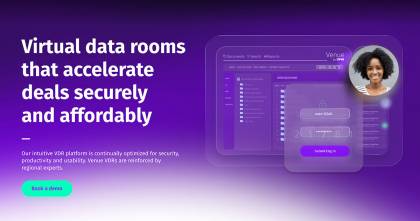Safeguarding sensitive financial data is a top concern of companies that have observed the financial and reputational losses that come whenever data is exposed because of data breaches. While many companies have systems in place to detect and thwart suspicious activity, these may be geared toward on-premises rather than a remote work or hybrid work environment, which is increasingly common.
Cybersecurity research indicated that remote desktop attacks increased by 768% in 2020 as attackers focused on employees who were working remotely during the pandemic. Below, we’ll review the ways your small business's financial data can be compromised in a remote work environment. We’ll also detail how artificial intelligence (AI) can help keep data safe by identifying and deterring threats before data is stolen.
How Your Financial Data Can Be Compromised
If your financial data is compromised by an attack, these are the likeliest culprits:
- Phishing email: In a phishing email, attackers try to get valid login credentials from an employee by sending a spoof email designed to look like it came from a legitimate source. If an employee does not recognize the phishing email, he or she will give his or her credentials to an attacker, who will gain access to your company’s data.
- Weak encryption: Encryption protects data during transit via a code by hiding the data. If encryption is weak, an attacker can decipher the code and gain access to credentials. If encryption is missing, an attacker doesn't need to work as hard to steal your business data. Always invest in the best encryption as a safeguard against attack.
- Employee error: Whether through using weak passwords that are easily guessed or through another error, employees can grant attackers access to your business data by accident.
- Stolen password: If your employees use the same password across multiple sites, an attacker can get their login credentials in another data breach, then use the stolen credentials to access your assets.
- Ransomware: Ransomware operates via malware, in which a malicious software is downloaded on an employee's device. The malware can then lock business assets until a ransom is paid. As with phishing, employees who are trained on cybersecurity best practices are less likely to fall prey to this attack, so focus on education.
- Misconfiguration: When your business website is misconfigured, a hacker can identify loopholes in the configuration to find a back door into your system. Misconfiguration can generally be avoided by automation, as this flags and fixes errors automatically, so you don't have to rely on manual identification to uncover vulnerabilities.
Remote Work Cybersecurity Risks
Attackers were using these techniques well in advance of the remote work rise, so what makes working from home different? There are a couple factors to call out when it comes to remote work risks:
- Unsecured Wi-Fi: In the office, there are firewalls, IT staff monitoring every detail and strong security protocols. At home or when using public Wi-Fi, such as at a coffee shop or public library, there may be no Wi-Fi password. Thus, anyone can be sharing the network looking for valuable data to steal.
- If an employee uses an unsecured Wi-Fi network to log in to the remote desktop and views sensitive financial data, a hacker can scrape that person’s information via the unsecured network.
- Theft: Employees working remotely are more likely to be the victims of theft, whether a thief breaks into their house or an opportunist takes home a tablet that was left in a hotel or coworking space. These crimes of opportunity are far less likely to happen at the office due to the greater physical security, which includes access control and security guards.
Considering that the loss or theft of a laptop or tablet could give a third party access to critical business documents, it is vital to understand the way devices are at risk and take steps to safeguard business assets.
The Role of AI in Protecting Financial Data
While businesses have IT teams and cybersecurity software to keep the attackers at bay, AI also has a role to play in protecting financial data. AI can operate 24/7, providing constant oversight while your employees are off duty. Cybersecurity software that uses AI is able to take advantage of machine learning technology to make smart decisions regarding potentially suspicious traffic.
To illustrate with an example, consider what happens when a phishing email is sent. Your employee needs to have the training to be able to recognize, avoid and report the suspicious email rather than respond to it — giving away access. AI technology can recognize the potential threat and remove it from an employee's inbox by relying on algorithms.
Predictive capabilities also work when it comes to firewalls and access control. AI will double-check before granting entry to sensitive financial data. If an employee is trying to access something that's outside his or her lane, the system will flag the request to determine whether it is legitimate.
The system is also self-aware, using the same learning capabilities to check for blind spots that need updating. Given that the attackers are always evolving their techniques to gain entry to your business data, cybersecurity software needs to stay up to date as well. By checking for encryption, authentication or application updates and fixing bugs automatically, the AI better ensures the cybersecurity tools are up to date and always ready.
When customer data is stolen, businesses face real reputational damages. Customers may no longer feel safe conducting business and choose a competitor. Companies might need to pay settlements to the customers whose data was stolen. If your business does not have an intelligent cybersecurity solution in place, plan to do so imminently to protect the business you've worked so hard to build and your reputation in the marketplace.
For further information on how to shield your small business from financial compromise, read the accompanying resource.
Author bio: Peter Braverman is Vice President of Global Venue Sales for Donnelley Financial Solutions™, a financial software solutions company. He has 16 years of experience in the industry and focuses on selling SaaS solutions in the Capital Markets industry.

